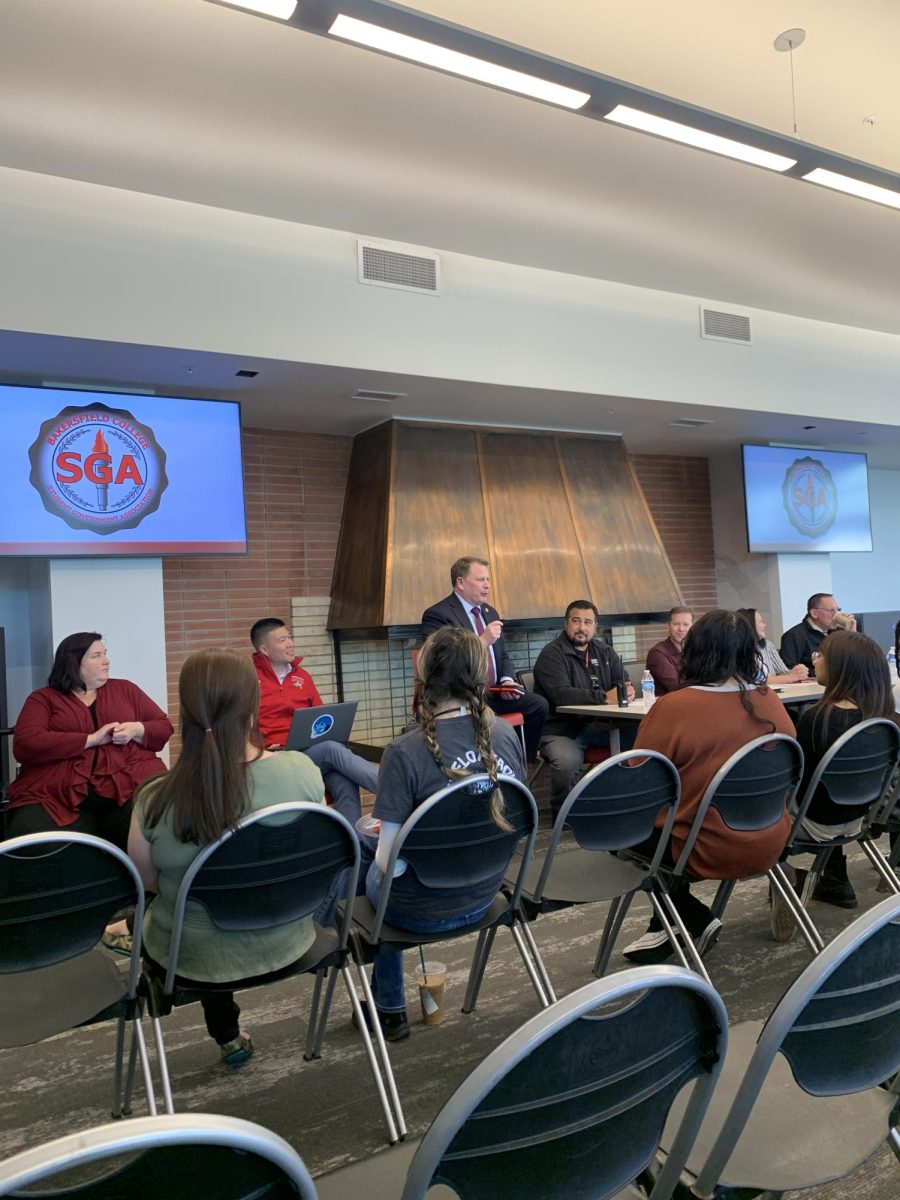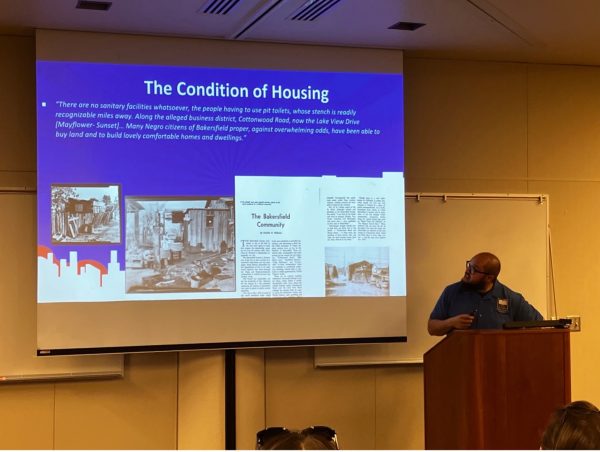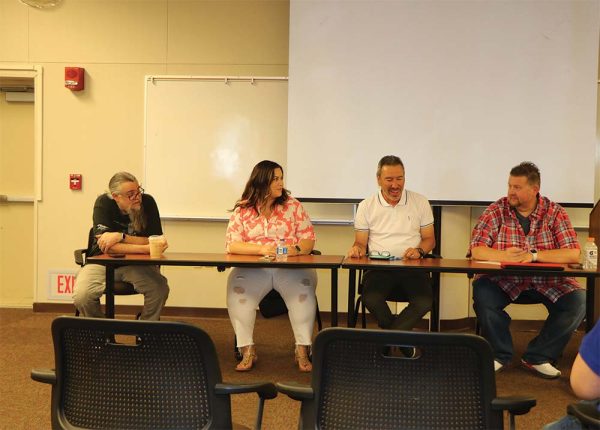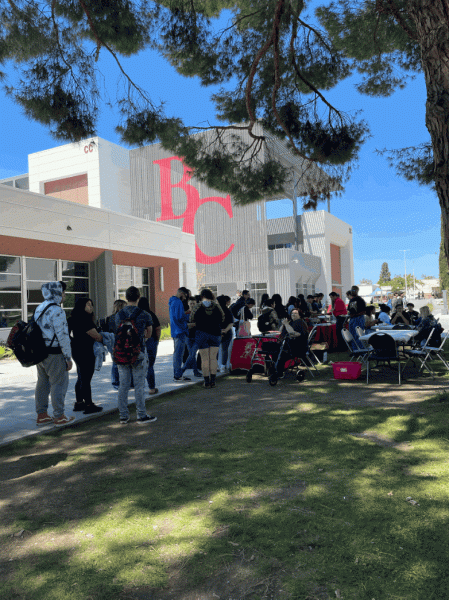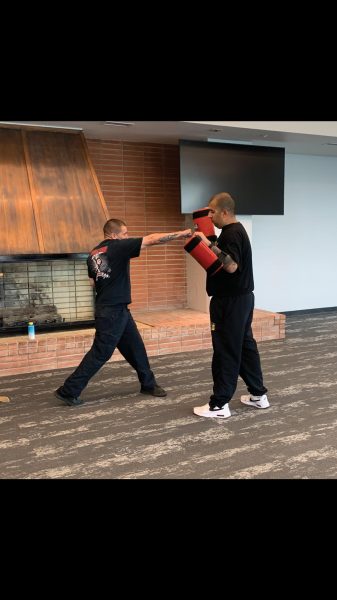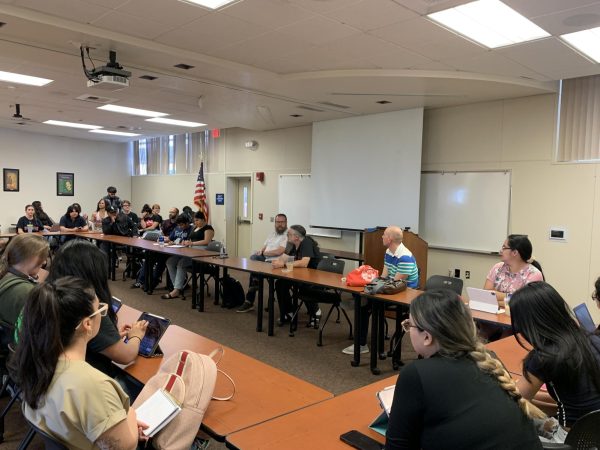CSUB poetry read for 100th WWII Anniversary
November 26, 2018
To memorialize the 100th anniversary of America’s involvement in World War I (WWI), the CSUB Public History Institute brought together various members of the community to read poetry from the era in the Dezember Reading Room of the Walter W. Stiern Library on Nov. 7.
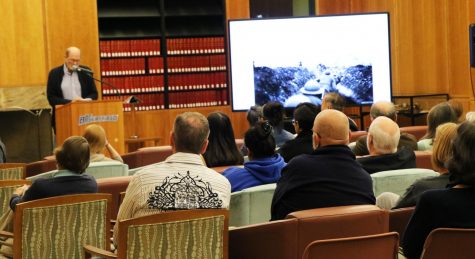
English Professor Matthew Woodman discussed the impact of this particular type of poetry had on readers during this time. Through this formal poetic style, people gained exposure to a sense of patriotism and national consciousness.
CSUB Dean of Arts and Humanities Robert Frakes read an excerpt from “The Soldier,” by Robert Brooke: “If I should die, think only this of me: That there’s some corner of a foreign field that is for ever England…In hearts at peace, under an English heaven.”
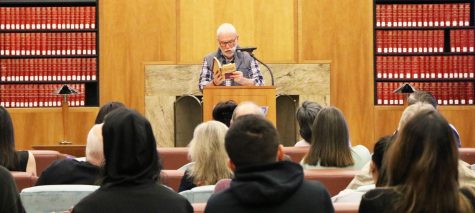
Local poet Don Thompson speaks for and as Edward Thomas, WWI solider and poet, as he reads his poem “Rain.”
The poem demonstrated a warrior’s dream to see their beloved country’s influence span across the battlefields and how he accepts the possibility of dying a gruesome, yet honorable death to see the dream come to fruition.
Library Dean at CSUB and Navy Veteran Curt Asher also read lines from “Dulce et Decorum,” a poem by Wilfred Owen written in the midst of war. “Knock-kneed, coughing like hags, we cursed through sludge, Till on the haunting flares we turned out backs. And towards our distant rest began to trudge.”
The poem was an early example that described the war’s brutality and gave the people insight of the horrific reality soldiers witnessed on the battlefield and in the trenches.
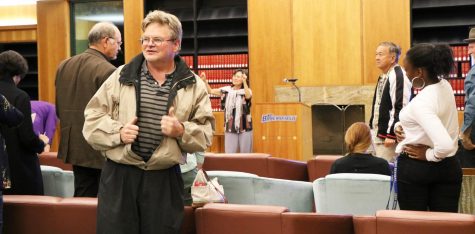
Director of Kern Poetry Portia Choi encourages attendees to stand up and stretch before she reads an excerpt from “Battle of the Somme: The Song of the Mud” by Mary Borden.
“His hanging face, like a devil’s sick of sin; If you could hear, at every jolt, the blood come gargling from the froth-corrupted lungs…Of vile, incurable sores on innocent tongues,” read Asher.
Woodman explained how everyone had preconceived notions on what poetry could do. Poetry was something that represented the country and the nation itself, and people looked to poetry as a way to engage and grasp the true reality of war.
“WWI poetry is important in terms of both literature, being able to understand how the power of literature has changed and evolved, and in terms historical and social consciousness, how people think of themselves as citizens and a representative of the state,” Woodman said.


